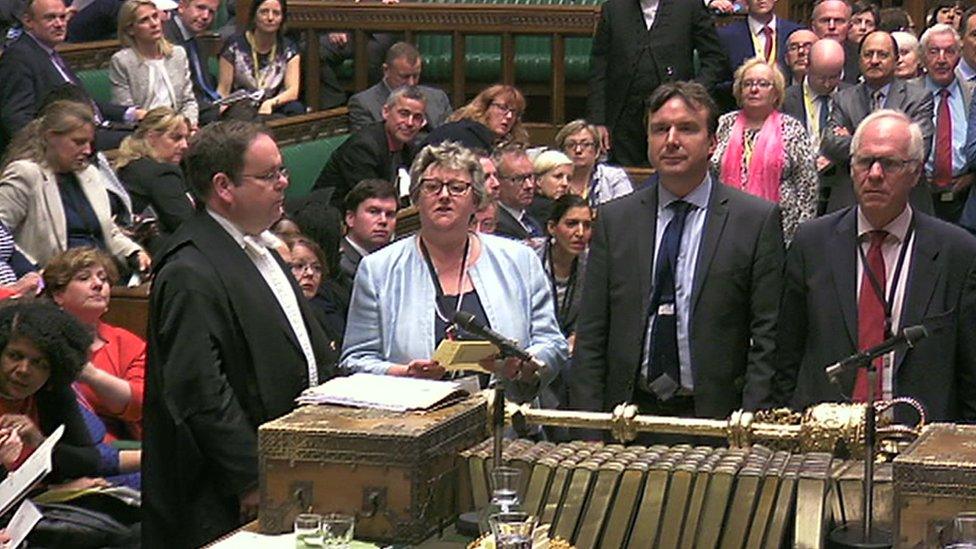Labour bids to defuse Luciana Berger de-selection row
- Published
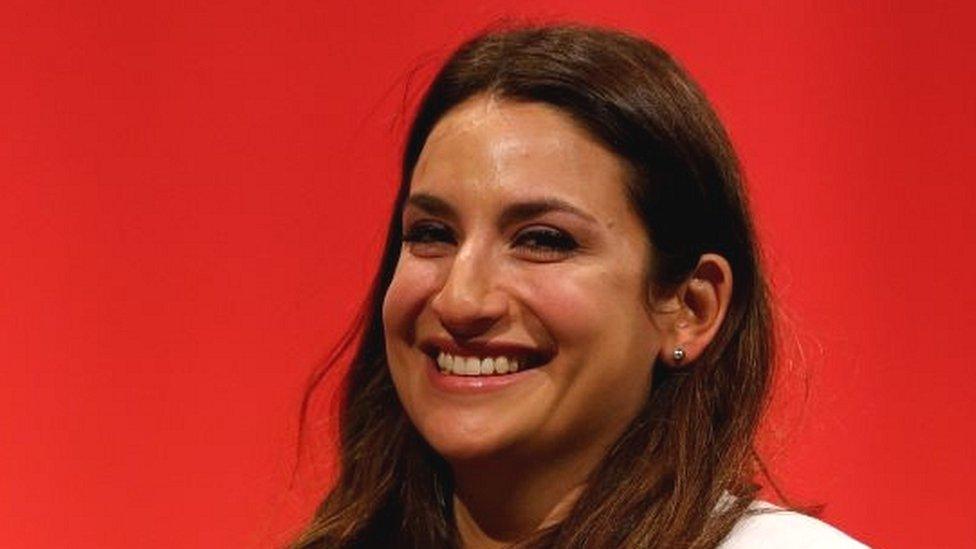
Luciana Berger was re-elected with an increased majority
The new Labour Party chairman Ian Lavery has told the Daily Mirror, external that he doesn't see the "de-selection" of MPs critical of Jeremy Corbyn "as the way forward".
Chills had gone up some Blairite spines when Mr Lavery himself had suggested at the weekend the Labour "might be too broad a church".
But he sought to calm nerves which had been further put on edge by comments from Mr Corbyn's close ally Chris Williamson, recently re-elected as the MP for Derby North having been narrowly defeated at the 2015 election.
On Thursday, Mr Williamson said: "There are individual MPs in this party who think it's their God-given right to rule.
"No MP should be guaranteed a job for life. Labour is a big church, but we currently have a large bulk of MPs who represent one relatively small tendency in the congregation... it's unreasonable to think we as MPs can avoid any contest."
'Answerable to us'
His words didn't sound like empty rhetoric to the MP for Liverpool Wavertree, Luciana Berger - seen as being on the moderate wing of the party.
She had resigned as a shadow minister when, a year ago, 80% of Jeremy Corbyn's MPs were expressing no confidence in his leadership.
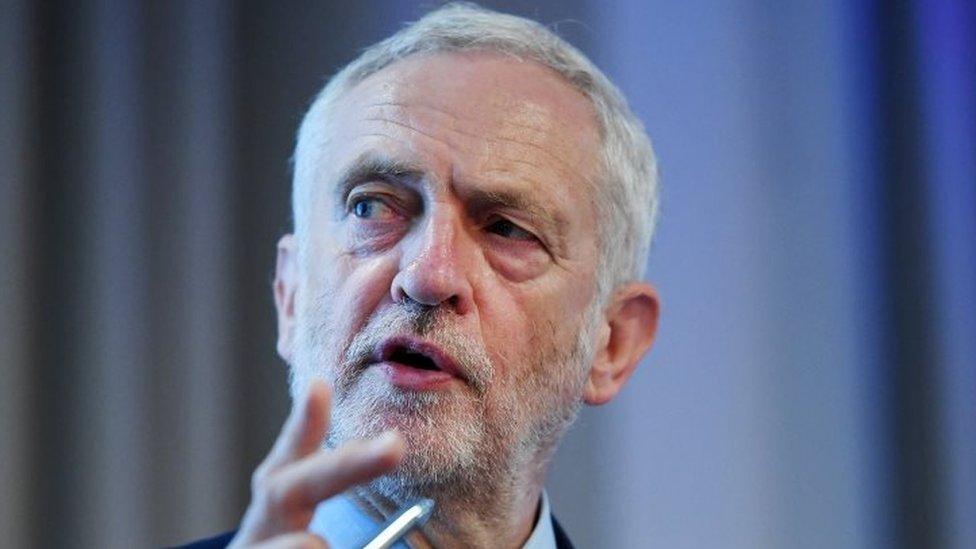
Jeremy Corbyn has stressed his support for party democracy
A left-wing "slate" of candidates had succeeded in taking almost all of the key offices on her local party's executive.
And one of the winners - Roy Bentham - had shared his thoughts with the Liverpool Echo, external.
He suggested that Ms Berger, who was re-elected last month with an increased majority, publicly recant her criticism of the party leader and for the avoidance of doubt he declared: "She is answerable to us now."
The local party secretary Angela Kehoe-Jones distanced herself from the remarks and suggested the branch was "united" in fighting the Tories.
But there is little doubt that Ms Berger - who is on maternity leave - feels her job is under threat.
And she is not the only one.
'Rogues' gallery'
A Labour MP who held her seat against the odds at the election told me she was threatened with de-selection within 48 hours of the result.
And you only have to visit websites which purport to back the Labour leadership to view a "rogues' gallery" of MPs who are seen as disloyal.
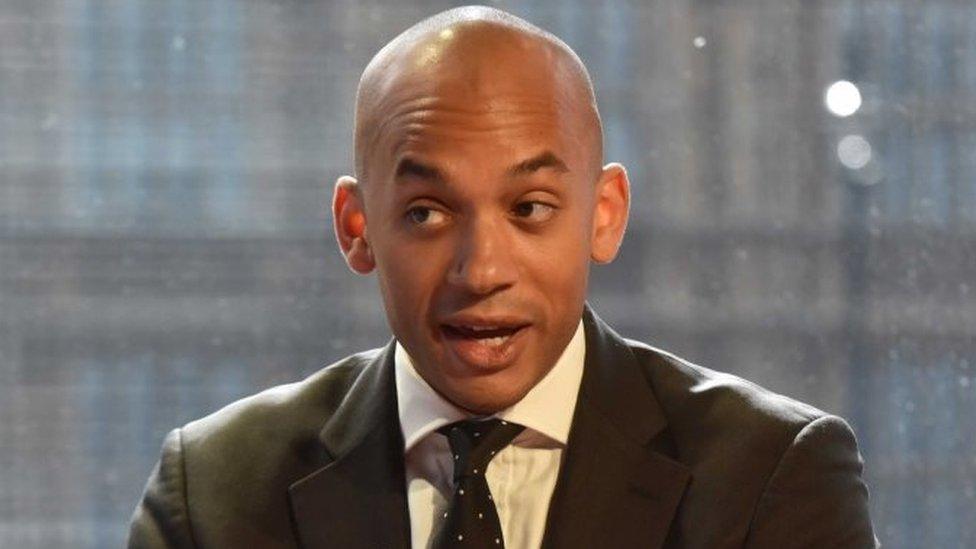
Chuka Ummuna faced criticism over amendment to Queen's Speech
Featuring on most lists is Chuka Umunna, who upset those close to Mr Corbyn by pushing an amendment to the Queen's Speech to keep Britain in the EU single market - not official party policy.
This was seen as forcing the party leader in to sacking frontbenchers and was the first tangible sign of disunity following the euphoria of the election result.
And while he wouldn't want to see Mr Umunna unseated, even Labour's deputy leader Tom Watson regarded that amendment as bad politics.
But some left-wing activists don't need new offences to be taken in to account.
Mass purge?
Some see those MPs who distanced themselves from Jeremy Corbyn as saboteurs of Labour's success.
And they are building a narrative that had they been more loyal - and party officials more ambitious - they could have propelled the party from second to first place at the election.
But don't expect a mass purge of Labour MPs.
Indeed, some Corbyn critics are likely to be offered junior spokespeople roles in the autumn.
But not all of those who are seen as beyond the pale are likely to be unseated.
Mr Corbyn has time and again stressed how much he supports party democracy.
So unless a local party has been - as in Luciana Berger's case - taken over by members and supporters of Momentum (the group set up to keep the spirit of Mr Corbyn's leadership campaigns alive) it would be difficult to dislodge the sitting MP.
'Join the Liberals'
And it should be said, not all local Momentum groups favour de-selecting sitting MPs in any case.
They would point out that they have campaigned for the re-election of MPs who aren't ideological fellow travellers.
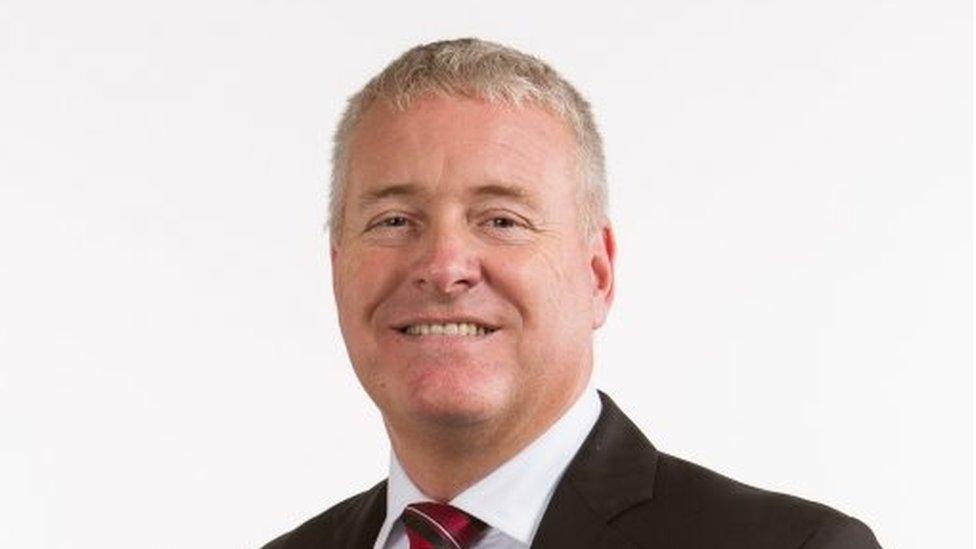
Ian Lavery has spoken out against de-selection
Momentum nationally weren't chuffed with a Facebook post from the South Tyneside group suggesting MPs such as Chris Leslie and Jess Phillips should "join the Liberals".
Instead of pushing existing personalities out, largely beneath the political radar there are attempts to move Labour more solidly and permanently to the left and to ensure that, when the time comes, Jeremy Corbyn would be able to hand over the leadership to someone who largely shares his political outlook.
So at this year's Labour Party conference, there will be a move to shift the power in future leadership elections from MPs to party members.
This would mean just 5% of MPs - not the 15% of MPs and MEPs at present - would be needed to put a candidate on the ballot.
With a snap election, most anti-Corbyn MPs were returned to Parliament so while a left-wing candidate still might struggle to get 15% support, 5% is considered no barrier.
This move has already been reported extensively.
'Quiet revolution'
Mr Corbyn's internal opponents call it "the McDonnell amendment" - as shadow chancellor John McDonnell is a red rag to any of the party's more moderate bulls.
Groups of what were called Blairites and Brownites - they would call themselves modernisers or moderates - in organisations such as Progress and Labour First have been working hard to secure enough delegates to the annual conference to defeat the leadership changes.
With the deadline for deciding delegates drawing to a close, it's not clear yet who has the upper hand.
But something of a quiet revolution could be under way that would see the power of Jeremy Corbyn, and his supporters, entrenched.
Under Labour's rules, some topics need to be put on the table this year if they are decided next year.
So a slow burning fuse will be lit in the autumn that could blow up in to a more major row in 2018.
There are moves by those on the party's left to make it easier for local parties to oust sitting MPs in future.
Top official
This would involve party branches being encouraged to put forward alternative names for consideration, or for sitting MPs to be required to demonstrate they had 66% support locally to continue.
There will also be a move to increase the number members of Labour's ruling National Executive Committee (NEC), who are elected not by MPs or the unions, but by the rank-and-file members.
The assumption is that they are more in tune with Mr Corbyn's agenda.
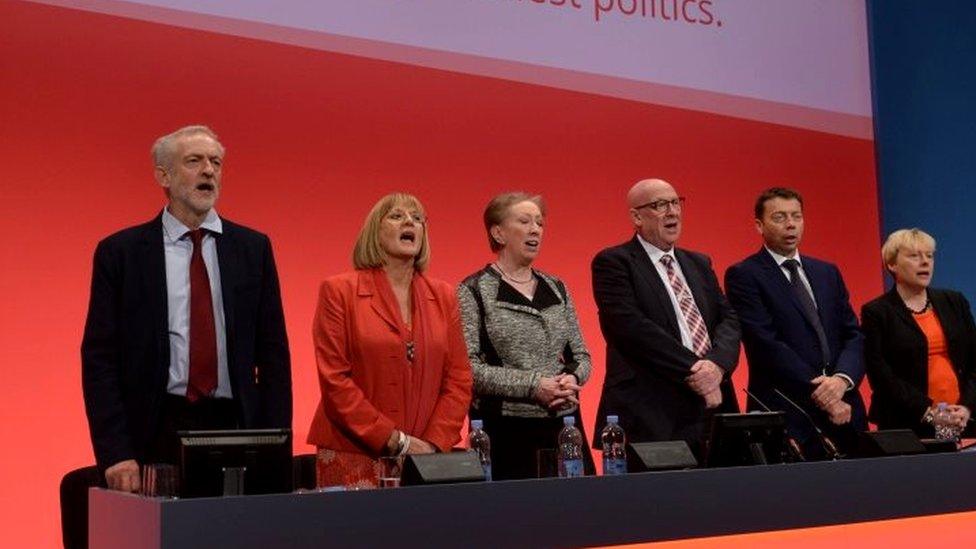
Iain McNicol (second right) sings The Red Flag at the 2015 Labour conference
The NEC approves party candidates for elections - and a panel of its members chooses by-election candidates.
There was an attempt to disbar the pro-nuclear and anti-Corbyn candidate John Woodcock at an NEC meeting just before the election.
That failed, but if the balance of power on the body were to change, so could the career prospects of the leadership's critics.
And indeed the career prospects of Labour's general secretary Iain McNicol would be called in to question by another proposed change.
There will be an attempt to give members the right to choose the party's top official in future.
Again, this can't be decided until next year but could put Mr McNicol on notice.
Poll lead
He is blamed for trying to deny new (and, it was assumed, more radical) members the right to vote in last year's leadership contest and for not putting enough resources in to Labour/Tory marginals at the general election.
He would contend that the party HQ's strategy of defending vulnerable seats - as well as swiftly moving resources to seats which looked promising as the campaign progressed - was a success.
So by its actions in the coming months, Labour - 8 points ahead in one opinion poll today, external - could choose to remain a broad church.
Or further expose the fact that many of its MPs and grassroots members aren't really singing from the same hymn sheet.
- Published26 June 2017
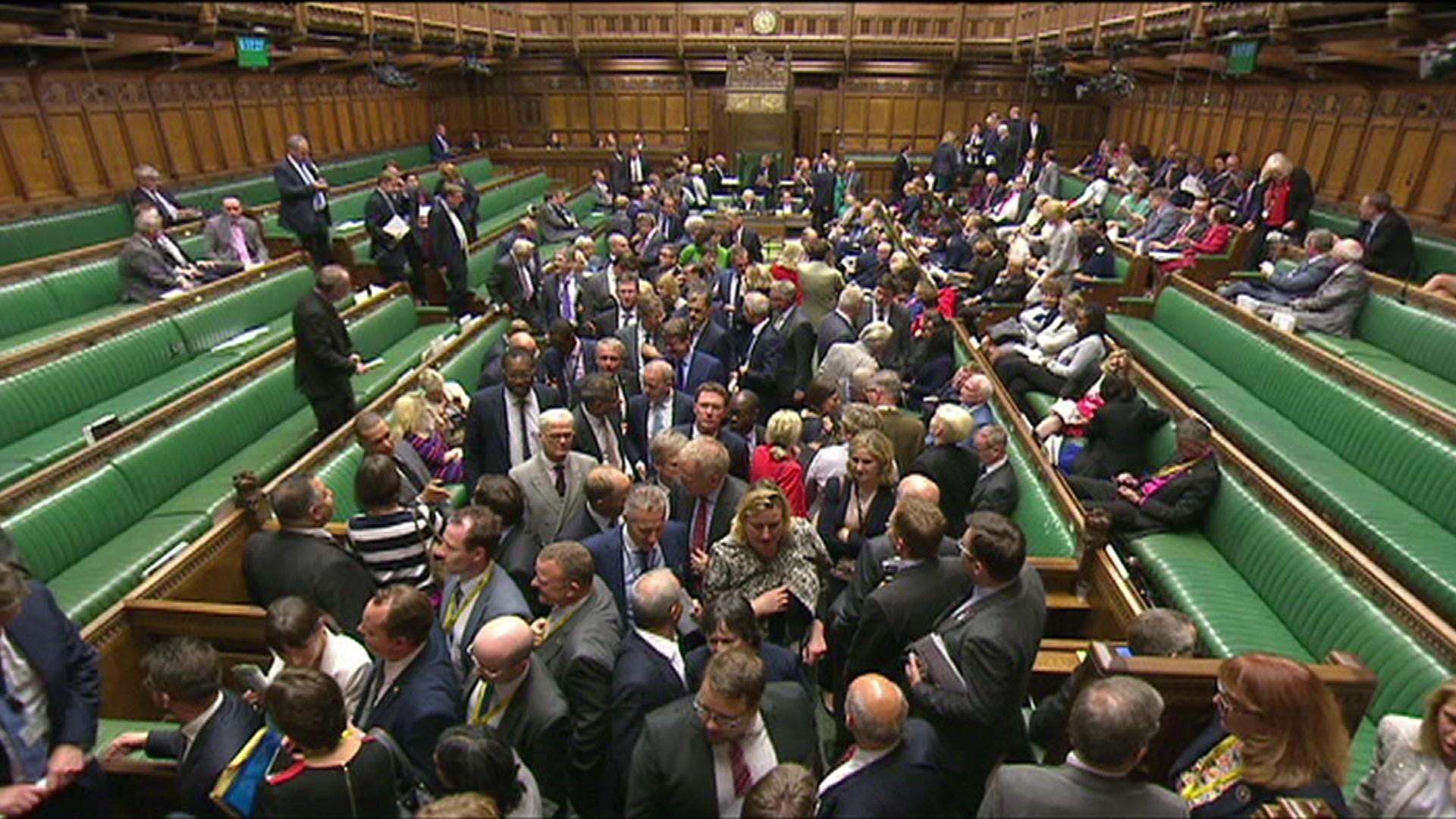
- Published29 June 2017
